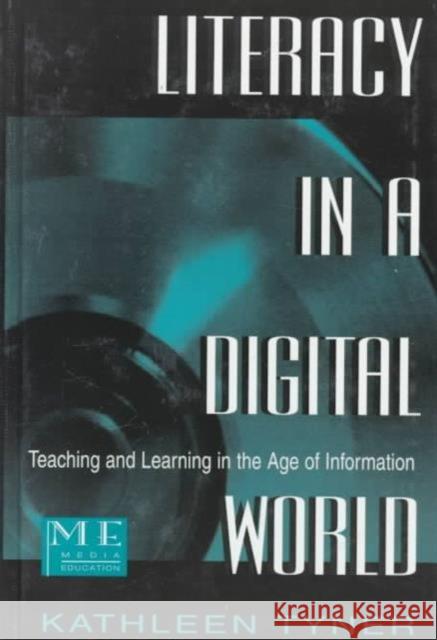Literacy in a Digital World : Teaching and Learning in the Age of Information » książka
Literacy in a Digital World : Teaching and Learning in the Age of Information
ISBN-13: 9780805822274 / Angielski / Twarda / 1998 / 304 str.
Literacy in a Digital World : Teaching and Learning in the Age of Information
ISBN-13: 9780805822274 / Angielski / Twarda / 1998 / 304 str.
(netto: 718,58 VAT: 5%)
Najniższa cena z 30 dni: 654,86
ok. 16-18 dni roboczych.
Darmowa dostawa!
This work examines the tenets of literacy through an historical lens to demonstrate how new communication technologies are resisted and accepted over time. New uses of information for teaching and learning create a disconnect in the complex relationship between literacy and schooling, and raise questions about the purposes of literacy in a global, networked, educational environment. The way that new communication technologies change the nature of literacy in contemporary society is discussed as a rationale for corresponding changes in schooling.
In this book, Kathleen Tyner examines the tenets of literacy through a historical lens to demonstrate how new communication technologies are resisted and accepted over time. New uses of information for teaching and learning create a "disconnect" in the complex relationship between literacy and schooling, and raise questions about the purposes of literacy in a global, networked, educational environment. The way that new communication technologies change the nature of literacy in contemporary society is discussed as a rationale for corresponding changes in schooling.
Digital technologies push beyond alphabetic literacy to explore the way that sound, image, and text can be incorporated into education. Attempts to redefine literacy terms--computer, information, technology, visual, and media literacies--proliferate and reflect the need to rethink entrenched assumptions about literacy. These multiple literacies are advanced to help users make sense of the information glut by fostering the ability to access, analyze, and produce communication in a variety of forms.
Tyner explores the juncture between two broad movements that hope to improve education: educational technology and media education. A comparative analysis of these two movements develops a vision of teaching and learning that is critical, hands on, inquiry-based, and suitable for life in a mobile, global, participatory democracy.











